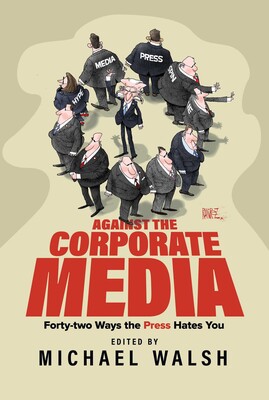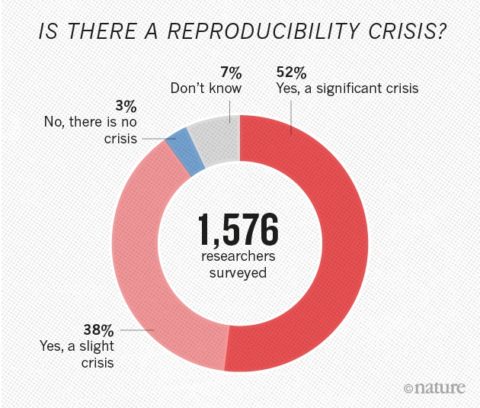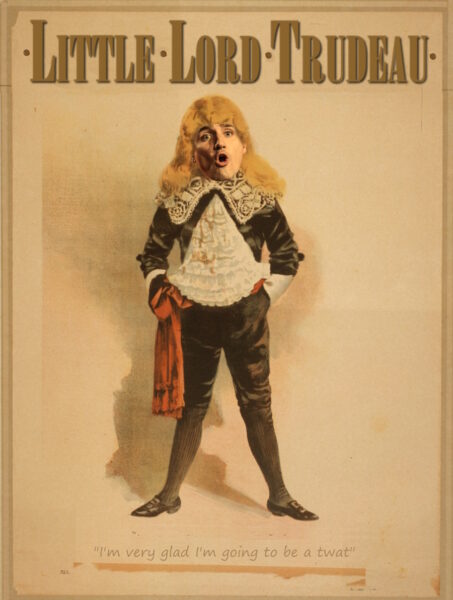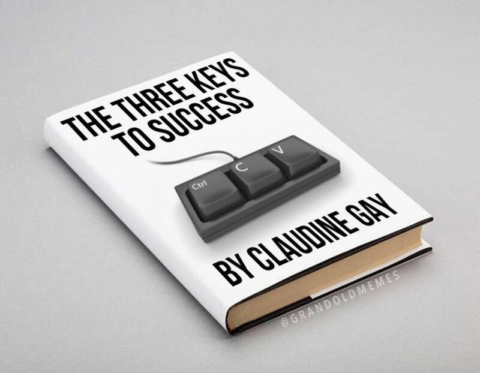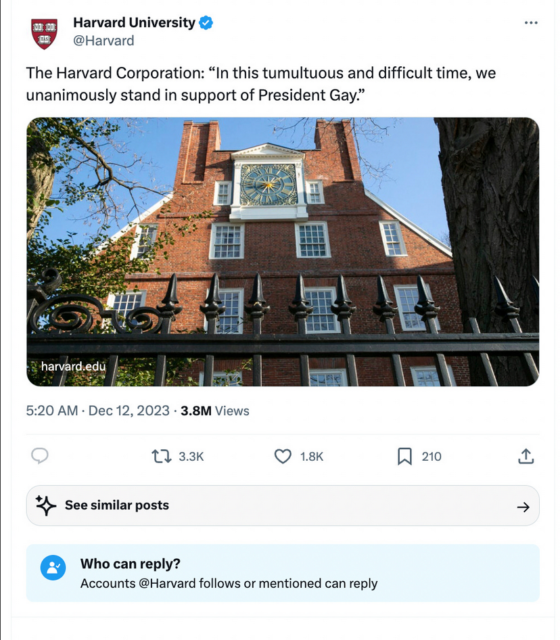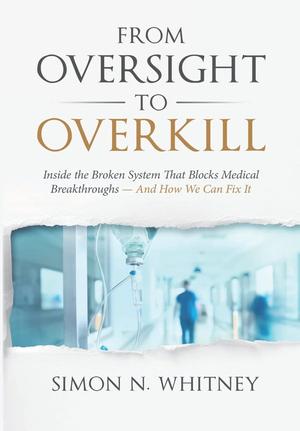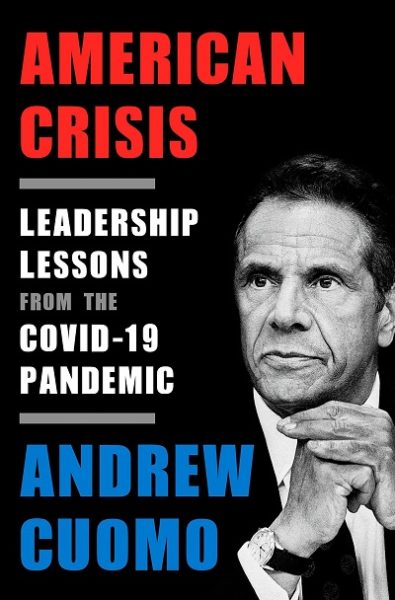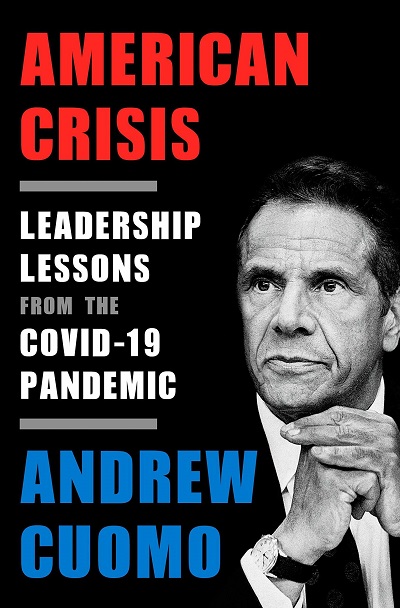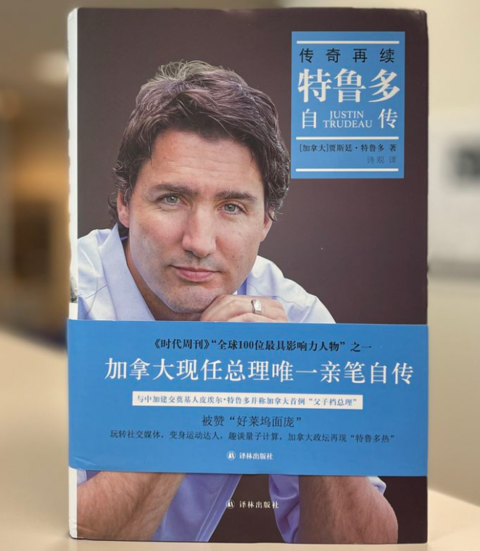“I would strangle everyone in this room if it somehow prolonged my son’s life.” That’s what I blurted into a microphone during a panel discussion on ethics. I was laughing when I said it, but the priest sitting next to me turned sharply in horror and the communist sitting next to him raised her hand to her throat and stared daggers at me.
Why was I on a panel with a priest and a revolutionary communist? Long story — not very interesting: we were debating the future of ethics with special attention to the role of religion. The interesting part, however, is that at some point, after we all shook hands like adults and I was on my way home, I realized that I meant it — I would choke them all. Well, of course, one can’t be entirely sure that one’s actions will follow one’s intentions. The best-laid plans of mice and men, and all that. But, given some weird Twilight Zone scenario wherein all their deaths somehow saved my son’s life, I was at least hypothetically committed. The caveman intentions were definitely there.
The utilitarian demand — that I should always maximize the greatest good for the greatest number — had seemed reasonable to me in my 20s but made me laugh after my son was born. And my draconian bias is not just the testosterone-fueled excesses of the male psyche. Mothers can be aggressive lionesses when it comes to their offspring. While they are frequently held up as icons of selfless nurturing love, that’s mostly because we offspring — the ones holding them up as icons — are the lucky recipients of that biased love. Try getting between a mammal mother and her kid, and you will see natural bias at its brutal finest.
Stephen T. Asma, “Confucius Got It Right: Giving in to ‘Bias’ is Part of Living an Ethical Life”, Quillette, 2020-02-01.
February 19, 2025
QotD: The inborn bias of all mankind
December 6, 2024
Liberal cabinet minister accepts “free” Taylor Swift tickets
I’ve often joked that it isn’t surprising that politicians can be bought … what is surprising is just how little it can take. This situation isn’t quite as clear-cut as that, but it looks bad to everyone except Liberal Party insiders:

Former Canadian Defence Minister Harjit Sajjan in happier times (yeah, it’s the only picture I have of the minister).
On Tuesday we learned that federal Liberal cabinet minister Harjit Sajjan will be attending a Taylor Swift concert at BC Place in Vancouver, in a private suite, courtesy of PavCo, the Crown corporation that operates the stadium. The federal government partially funds PavCo, including $116 million earlier this year for improvements to the stadium in advance of the 2026 World Cup.
It’s a textbook conflict of interest. Open and shut. Dead to rights. So much for Sajjan’s political career. Only … not. The only people who seem to disagree that it’s a conflict are federal Liberals and, sorry to say, the office of the Conflict of Interest and Ethics Commissioner — because Sajjan donated $1,500 to a food bank as a gesture to compensate for the coveted opportunity.
“If an item is paid for through a charitable donation, then it would not be considered a gift,” a spokesperson for the commissioner said in response to questions from National Post. “In the case of Minister Sajjan, for example, the original market value of a ticket to a Taylor Swift concert in Vancouver was roughly $600.”
Where do we even begin with this nonsense?
PavCo offered private-box seats to various dignitaries on the understanding they would donate some appropriate amount of money to good causes. Sajjan says he’s proud to have participated.
But you can’t “pay for” a free concert ticket — to use the commissioner spokesperson’s term — by giving money to a food bank. That’s like The Keg offering you a free dinner so long as you pay for it at Montana’s … except food-bank donations, unlike steak dinners, come with tax receipts.
July 31, 2024
May 16, 2024
The replication crisis and the steady decline in social trust
Theodore Dalrymple on the depressing unreliability — and sometimes outright fraudulence — of far too high a proportion of what gets published in scientific journals:
Until quite recently — I cannot put an exact date on it — I assumed that everything published in scientific journals was, if not true, at least not deliberately untrue. Scientists might make mistakes, but they did not cheat, plagiarise, falsify, or make up their results. For many years as I opened a medical journal, the possibility simply that it contained fraud did not occur to me. Cases such as those of the Piltdown Man, a hoax in which bone fragments found in the Piltdown gravel pit were claimed to be those of the missing link between ape and man, were famous because they were dramatic but above all because they were rare, or assumed to be such.
Such naivety is no longer possible: instances of dishonesty have become much more frequent, or at least much more publicised. Whether the real incidence of scientific fraud has increased is difficult to say. There is probably no way to estimate the incidence of such fraud in the past by which a proper comparison can be made.
There are, of course, good reasons why scientific fraud should have increased. The number of practising scientists has exploded; they are in fierce competition with one another; their careers depend to a large extent on their productivity as measured by publication. The difference between what is ethical and unethical has blurred. They cite themselves, they recycle their work, they pay for publication, they attach their names to pieces of work they have played no part in performing and whose reports they have not even read, and so forth. As new algorithms are developed to measure their performance, they find new ways to play the game or to deceive. And all this is not even counting commercial pressures.
Furthermore, the general level of trust in society has declined. Are our politicians worse than they used to be, as it seems to everyone above a certain age, or is it that we simply know more about them because the channels of communication are so much wider? At any rate, trust in authority of most kinds has declined. Where once we were inclined to say, “It must be true because I read it in a newspaper”, we are now inclined to say, “It must be untrue because I read it in a newspaper”.
Quite often now I look at a blog called Retraction Watch which, since 2010, has been devoted to tracing and encouraging retraction of flawed scientific papers, often flawed for discreditable reasons. Such reasons are various and include research performed on subjects who have not given proper consent. This is not the same as saying that the results of such research are false, however, and raises the question of whether it is ethical to cite results that have been obtained unethically. Whether it is or not, we have all benefited enormously from past research that would now be considered unethical.
One common problem with research is its reproducibility, or lack of it. This is particularly severe in the case of psychology, but it is common in medicine too.
February 14, 2024
QotD: Judging historical figures’ actions
It is important to judge people and events in their own time. First, because that’s the only way we really can judge them.
You can’t judge people on actions they didn’t know were wrong, or on things that were hidden from them, which only time has revealed. Or rather, you can, but it’s deranged. What you are holding people guilty of is not being psychic. Not being able to foretell the future. Well, none of us can. Not with any accuracy, and never about things we want to. (Yeah, sometimes I get something like glimpses, but seriously? Do you see me among the lottery winners? No? That’s because I can’t see the future in a significant way.) Go ahead and despise people for that failing, but be aware you’re being deranged.
Also, unlike the people on the left, most of us are aware we, ourselves, are not infallible, and our time is not the pinnacle of knowledge and morality. Things that seem right to us now — or at least not markedly wrong — can and will be reviled by future lovers of liberty.
Sarah Hoyt, “In Their Time”, According to Hoyt, 2023-11-07.
February 3, 2024
“There are no tangible consequences for politicians who violate ethics rules. The maximum fine is just $500”
Chris Selley helpfully explains why — even if the ethics commissioner turns a blind eye, again — Justin Trudeau should avoid ostentatiously living like an aristocrat in the Ancien Régime of pre-revolutionary France:
Interim federal Ethics Commissioner Konrad von Finckenstein authored a great moment in Canadian political accountability on Tuesday in explaining to a parliamentary committee when and why he might investigate a very generous gift to the prime minister from a friend. (Gifts from friends are explicitly allowed for in the Conflict of Interest Act.) The gift would have to be “really exceptional,” he suggested, like “a Ferrari,” or “$1 million,” to trigger an investigation.
You can get two Ferrari 296s for $1 million. Or a Daytona SP3 for around $2.5 million. It’s a very confusing standard.
Not rising to this “exceptional” level, apparently, is the free nine-day vacation in a luxury Jamaican villa the Trudeau clan enjoyed over the Christmas break, with a retail cost of around $84,000, courtesy of family friends who own the estate.
“This is a true friend, who has no relations with the government of Canada,” von Finckenstein told the committee (read: unlike the Aga Khan, whom von Finckenstein’s predecessor Mary Dawson found not to have been a real-enough friend to escape her wrath). “What we have here is clearly a generous gift, but it’s between people who are friends and I don’t see why, just because they’re well off, they can’t exchange gifts.”
Leaving aside what the prime minister is allowed to do with his truly rich true friends, it remains utterly astonishing to me that Justin Trudeau or someone with an ounce of sway in his office wouldn’t put a stop to this conspicuously consumptive behaviour as a matter of choice.
[…]
Hard cases make bad law, and it’s almost impossible to imagine a future prime minister luxuriating in his birthright lifestyle the way Trudeau does. In fact, so long as such gifts are disclosed — which the Aga Khan caper might well not have been, had the National Post not been tipped off — I think it’s probably better to let Canadians decide for themselves what they think of their PM’s behaviour when he’s unshackled by hard-and-fast rules.
It’s not as though the ethics commissioner’s findings of guilt have any real effect. There are no tangible consequences for politicians who violate ethics rules. The maximum fine is just $500. Former finance minister Bill Morneau was dinged just $200 for forgetting to disclose his villa in Provence. (I suspect La Villa Oubliée is unavailable to rent at any price.)
January 4, 2024
“Missing from Gay’s note was some important … context”
Oliver Wiseman and Bari Weiss consider the resignation-under-pressure of Harvard President Claudine Gay:
Why did Claudine Gay step down yesterday as president of Harvard? In a letter announcing the bombshell decision, Gay wrote that it was in “the best interests of Harvard for me to resign so that our community can navigate this moment of extraordinary challenge with a focus on the institution rather than any individual.”
She also blamed racism: “It has been distressing to have doubt cast on my commitments to confronting hate and to upholding scholarly rigor — two bedrock values that are fundamental to who I am — and frightening to be subjected to personal attacks and threats fueled by racial animus,” Gay wrote in her email Tuesday.
Missing from Gay’s note was some important … context.
In particular, there was no mention of the twin scandals that have plagued Gay and captured the attention of the country in recent weeks. The first: her handling of antisemitism and free expression on Harvard’s campus since October 7, including her appalling appearance before Congress in December.
The second: the ever-growing list of plagiarism allegations against Gay. On Monday night, the dogged journalists over at The Washington Free Beacon reported six more charges of plagiarism. That brought the number of allegations against Gay close to 50 and implicated half of her published works in the scandal. The next day, Gay was gone, making her the shortest-serving president in Harvard’s history: the Kevin McCarthy of higher ed.
Within minutes the crowing began. Major props went to Bill Ackman, the billionaire investor who has relentlessly criticized his alma mater since the attacks of October 7; to Chris Rufo, the Manhattan Institute senior fellow who was early on the story of plagiarism allegations against Gay; and to Free Beacon reporter Aaron Sibarium (more about him in a minute).
But does Gay’s resignation — and apparently she will remain on the faculty — actually change things?
Our sense — and recent events have only reinforced it — is that Claudine Gay is only the symptom of a deeper rot, both at Harvard and across higher education more generally.
One of the people who has been outspoken about that deeper crisis is Jeffrey Flier, who was the dean of Harvard Medical School from 2007 to 2016 and is a member of the Council on Academic Freedom at Harvard, a group founded by Harvard academics last year to fight the free speech crisis on their campus. (Harvard ranks dead last with a score of 0.00 in FIRE’s college free speech rankings.)
We spoke to Flier hours after Claudine Gay’s resignation. He said he sees the present crisis as a chance for the university to fix itself. “Her departure may have been necessary. But the university needs to do more than appoint a new president,” he explained.
“Before October 7, few people thought fixing problems at Harvard was a really urgent need. I am with a group that wanted real change, but relatively few people were listening. But now there is real opportunity for change,” explains Flier.
December 13, 2023
September 5, 2023
The worst Prime Minister in Canadian history?
My own opinion is that the Trudeaus, taken together, are certainly the worst family to have been political leaders of Canada, but is Justin Trudeau the single worst PM in history?
Like father, like son, a dynastic peril. I should mention at this point that the best short article on Justin Trudeau’s unfitness for office was posted on this site by my wife Janice Fiamengo some two years back. It would be folly for me to try to outdo her writerly excellence, unflappable tact, and marksman-like precision. Here I offer an updated summing-up of why Justin Trudeau is surely unprecedented in the annals of Canada’s ideological destitution. The daily spectacle we are witnessing, the eruption of political sludge and magma from the depths of government policy, puts paid to any promotional salvage operation.
This is a prime minister who has been implicated in numerous scandals and cited for several ethics violations, all to no avail. He has imposed a needless and prohibitive carbon tax upon a groaning nation and propelled the national debt into the fiscal asteroid belt. He is soft on terrorism, having awarded a $10.5 million reparation payment to al-Qaeda terrorist, and the son of Ahmed Said Khadr, Omar Khadr, who had been imprisoned in Guantanamo for killing an American medic in Afghanistan. Trudeau also sympathized with Boston Marathon bomber Dzhokhar Tsarnaev, a Muslim immigrant from Chechnya, who killed three people and injured another 170, saying, “there is no question that this happened because there is someone who feels completely excluded”.
As noted, this is a prime minister who has bought the media with elaborate financial gifts, who admires the “basic dictatorship” of Communist China, and has made no secret of his fondness for Castro, waxing eloquent in his eulogy for the dead dictator, and who, like his father, has adopted an energy policy intended to phase out the western petroleum industry in the interests of a “just transition” to inefficient green renewables, and thus cripple the economic foundation of the country in perpetuity.
This is a prime minister who mandated draconian COVID-19 protocols — masks, quarantines, lockdowns, vaccines. The entire effort is now known to have been a colossal blunder whose results were ineffective at best and noxious, even lethal, at worst. Concerning the vaccines, Trudeau now claims that he did not force anyone to take them but “chose to make sure all of the incentives and all of the protections were there to encourage Canadians to get vaccinated”. In other words, offer them an incentive they can’t refuse. The “incentives” amounted to interventions like losing one’s job, livelihood, social freedoms, and Charter rights. Even people who did remote work had to be vaccinated; if they were fired, they were ineligible for Employment Insurance.
Giving Trudeau’s protestations the lie, in a Sept. 16, 2021 interview aired on the French-language program “La semaine des 4 Julie“, he referred to unvaccinated Canadians as “extremists”, as people who “don’t believe in science or progress and are very often misogynistic and racist”. “A leader who expresses such detestation for his own people,” Janice writes, “and encourages frightened followers to participate in their dehumanization should not be trusted with the reins of government.” It’s hard to disagree.
We should never forget that this is a prime minister who in February 2022 invoked the dictatorial powers of the Emergencies Act — a Trudeau habit — to crush a peaceful, legitimate, and justifiable protest against the vaccine mandates by a brave and patriotic cohort of the country’s truckers and who authorized the banks to freeze protesters’ accounts, reminiscent of the Nazi 1938 Decree for the Reporting of Jewish-Owned Property issued by Hitler’s government. The mind boggles.
July 28, 2023
QotD: “Stakeholder” Capitalism
Like many things faddish and ephemeral — disco, Pet Rocks, feathered hair, taking Michel Foucault seriously as an intellectual — the 1970s gave birth to the concept of stakeholder capitalism, one of the most unfortunate yet enduring of the bad ideas that polyester decade bequeathed us. At its essence, stakeholder capitalism is Marxian capitalism run through a lens of business ethics. It is the attempt to maintain authoritarian control over capitalism by displacing the Invisible Hand with a Velvet Glove, then using that glove, which hides an iron fist, to pound the world into adopting values that both assert and maintain its worldview. It is Theory applied to markets, marketing, wealth creation and management, and an overall globalized ethos of required and policed “virtue”, with the end goal being — as it always is under the discourses of Cultural Marxist thought — power: who has it, who controls it, and who uses it for their own ends most effectively and ruthlessly.
Of course, nobody participating in the push to replace shareholder capitalism with stakeholder capitalism would describe it this way. But then, euphemism and branding are each crucial tools in the Marxist’s verbal toolbox. So when you ask a stakeholder capitalist to describe stakeholder capitalism, what you ordinarily hear is that, as a business ethic, it combines the “sustainability” shareholder capitalism supposedly lacks with the “inclusivity” we’re not supposed to recognize is merely stultifying, policed conformity, the yield being a Woke capitalism that replaces production and consumption with “sharing and caring,” taking it out of the realm of the invisible and mechanical, as Adam Smith would have it, and placing it into the realm of values, where it can be used to shape the Greater Good the Marxist pretends he cares about. It’s fascism with a smiley face.
In the stakeholder capitalist system, investors aren’t — or at least, they shouldn’t be — solely interested in profits driven by production and consumption. And this is because to the stakeholder capitalist, itself a euphemism for collectivist corporatist, “it is well proven that our current form of Capitalism is inherently unsustainable because it requires endless growth on a planet with finite resources.”
Of course, none of this is “well proven” — the history of shareholder capitalism suggests the opposite, in fact, as innovation has led to the production of more and more out of less and less — but whether this is or isn’t the material case is incidental to those who are working on this inorganic worldwide paradigm shift commonly known as The Great Reset.
Because the move toward a “caring and sharing” worldwide economy, especially one that we’re told will be both sustainable and inclusive, requires those who care, those who share, and — most importantly, and at the very heart of the turn — those who get to determine what is cared about, who must do the sharing, and how most effectively to police the excesses that the ruling elite determine aren’t sustainable, while slowly dissolving the idea of the individual and his will to make way for an inclusive collective required to run the machinery of the self-installed Elect. It’s a global system of neo-Feudalism dressed in the finery of familiar values that have been deconstructed and re-signified, often without their consumers even aware that the values they reference — which were once commonly understood and largely shared by the civil society — are now their precise inverse: “tolerance”, thus, becomes the violent rejection of intolerance, as they define it; free speech is separated from “hate speech”, as they adjudicate it; individualism is but a controlling fiction maintained by the white male power structure that must be replaced by an ordered and value-determined collection of identity markers that construct you, while simultaneously acknowledging that there is no “you” beyond this assembly of discourses that assign your being its social situatedness, then places you within a collective of those with similar — though never identical — constructions. Once here, you are graded on the intersectional scale. Your relative worth and power come down to not to the content of your character, but rather to the collection and arrangement of your victimization tokens.
Jeff Goldstein, “Maybe I’ll be there to shake your hand, maybe I’ll be there to stakeholder capitalist the land”, protein wisdom reborn!, 2023-04-26.
April 12, 2023
Institutional Review Boards … trying to balance harm vs health, allegedly
At Astral Codex Ten Scott Alexander reviews From Oversight to Overkill by Simon N. Whitley, in light of his own experience with an Institutional Review Board’s demands:
Dr. Rob Knight studies how skin bacteria jump from person to person. In one 2009 study, meant to simulate human contact, he used a Q-tip to cotton swab first one subject’s mouth (or skin), then another’s, to see how many bacteria traveled over. On the consent forms, he said risks were near zero — it was the equivalent of kissing another person’s hand.
His IRB — ie Institutional Review Board, the committee charged with keeping experiments ethical — disagreed. They worried the study would give patients AIDS. Dr. Knight tried to explain that you can’t get AIDS from skin contact. The IRB refused to listen. Finally Dr. Knight found some kind of diversity coordinator person who offered to explain that claiming you can get AIDS from skin contact is offensive. The IRB backed down, and Dr. Knight completed his study successfully.
Just kidding! The IRB demanded that he give his patients consent forms warning that they could get smallpox. Dr. Knight tried to explain that smallpox had been extinct in the wild since the 1970s, the only remaining samples in US and Russian biosecurity labs. Here there was no diversity coordinator to swoop in and save him, although after months of delay and argument he did eventually get his study approved.
Most IRB experiences aren’t this bad, right? Mine was worse. When I worked in a psych ward, we used to use a short questionnaire to screen for bipolar disorder. I suspected the questionnaire didn’t work, and wanted to record how often the questionnaire’s opinion matched that of expert doctors. This didn’t require doing anything different — it just required keeping records of what we were already doing. “Of people who the questionnaire said had bipolar, 25%/50%/whatever later got full bipolar diagnoses” — that kind of thing. But because we were recording data, it qualified as a study; because it qualified as a study, we needed to go through the IRB. After about fifty hours of training, paperwork, and back and forth arguments — including one where the IRB demanded patients sign consent forms in pen (not pencil) but the psychiatric ward would only allow patients to have pencils (not pen) — what had originally been intended as a quick record-keeping had expanded into an additional part-time job for a team of ~4 doctors. We made a tiny bit of progress over a few months before the IRB decided to re-evaluate all projects including ours and told us to change twenty-seven things, including re-litigating the pen vs. pencil issue (they also told us that our project was unusually good; most got >27 demands). Our team of four doctors considered the hundreds of hours it would take to document compliance and agreed to give up. As far as I know that hospital is still using the same bipolar questionnaire. They still don’t know if it works.
Most IRB experiences can’t be that bad, right? Maybe not, but a lot of people have horror stories. A survey of how researchers feel about IRBs did include one person who said “I hope all those at OHRP [the bureaucracy in charge of IRBs] and the ethicists die of diseases that we could have made significant progress on if we had [the research materials IRBs are banning us from using]”.
Dr. Simon Whitney, author of From Oversight To Overkill, doesn’t wish death upon IRBs. He’s a former Stanford IRB member himself, with impeccable research-ethicist credentials — MD + JD, bioethics fellowship, served on the Stanford IRB for two years. He thought he was doing good work at Stanford; he did do good work. Still, his worldview gradually started to crack:
In 1999, I moved to Houston and joined the faculty at Baylor College of Medicine, where my new colleagues were scientists. I began going to medical conferences, where people in the hallways told stories about IRBs they considered arrogant that were abusing scientists who were powerless. As I listened, I knew the defenses the IRBs themselves would offer: Scientists cannot judge their own research objectively, and there is no better second opinion than a thoughtful committee of their peers. But these rationales began to feel flimsy as I gradually discovered how often IRB review hobbles low-risk research. I saw how IRBs inflate the hazards of research in bizarre ways, and how they insist on consent processes that appear designed to help the institution dodge liability or litigation. The committees’ admirable goals, in short, have become disconnected from their actual operations. A system that began as a noble defense of the vulnerable is now an ignoble defense of the powerful.
So Oversight is a mix of attacking and defending IRBs. It attacks them insofar as it admits they do a bad job; the stricter IRB system in place since the ‘90s probably only prevents a single-digit number of deaths per decade, but causes tens of thousands more by preventing life-saving studies. It defends them insofar as it argues this isn’t the fault of the board members themselves. They’re caught up in a network of lawyers, regulators, cynical Congressmen, sensationalist reporters, and hospital administrators gone out of control. Oversight is Whitney’s attempt to demystify this network, explain how we got here, and plan our escape.
December 19, 2021
Remember the megabucks Andrew Cuomo received for his (ghostwritten) book? It’s going to New York State instead
Back in November, Kenneth Whyte reported on the unlikely pay-off for Andrew Cuomo and his American Crisis. In this week’s SHuSH newsletter he’s delighted to report that the state government — which effectively funded the research and writing of the book — will be the eventual recipient of the whole advance:
Sorry to keep harkening back to previous SHuSHs but I can’t overlook the latest on the Andrew Cuomo shambles.
You’ll remember that now-disgraced former governor of New York, Andrew Cuomo, played dirty with his publisher and the public while landing a lucrative book contract. More specifically, he suppressed bad news about pandemic deaths in his state while coaxing a $5.1 million advance out of Penguin Random House for a book about his heroic activities as a COVID-19 fighter.
I mentioned that it was astonishing that the governor of America’s hardest-hit pandemic state could produce a fat manuscript in just three months, and that media reports suggested his staff and a ghostwriter authored the book for him. The same reports said he was in danger of violating state ethics prohibitions against the use of state resources or personnel in producing his book.
I also noted that weeks after the grandly titled American Crisis: Leadership Lessons from the COVID-19 Pandemic was released in October 2020, Cuomo was hit with the first in a long series of sexual harassment allegations. He was forced to resign his office in August 2021. By then, it had also emerged that Cuomo’s office had covered up roughly half of the fatalities among state nursing home residents during the pandemic.
Penguin Random House took a bath on the project. American Crisis has sold only about 50,000 copies, about a tenth of what the publisher needed to cover the advance it paid the author.
This week it was Cuomo’s turn in the tub. An ethics panel ruled that he had broken his promises not to use state resources or government staff to write his self-congratulatory book, and gave him thirty days to hand over to the State of New York the $5.1 million he earned with the book.
‘Tis the season to be jolly
Fa-la-la-la-la, la-la-la-la
November 27, 2021
How Andrew Cuomo got megabucks for his (ghostwritten) book on the pandemic
In the latest issue of the SHuSH newsletter, Kenneth Whyte details how former New York state Governor Andrew Cuomo managed to get a $5.1 million advance from Random Penguin for a book that was mostly written by Cuomo staff members and an outside ghostwriter:
Penguin Random House contacted Cuomo’s agent about writing a book on March 19, 2020, about three weeks after the first COVID-19 case landed in New York. Cuomo was a TV darling in the early days of the pandemic. On July 1, his agent got back to Penguin Random House to say he’d written 70,000 words and he was ready to make a deal. How did a governor of America’s hardest-hit pandemic state produce a fat manuscript in three months flat? It appears he had his staff and a ghostwriter author the book for him, in violation of state ethics prohibitions against the use of any state resources or personnel to produce the book.
Meanwhile, Cuomo’s office was churning out doctored statistics to make his pandemic policies, particularly around nursing homes, look better than they deserved.
July 8, Cuomo’s book went to auction. Penguin Random House kicked things off with a $750,000 offer and wound up winning with a bid of $5.1-million. It was a triumph for Cuomo, and not his first in the publishing world: about seven years ago, he took HarperCollins for a $700,000 advance on what the New Republic called an “overlong … cliché-ridden, and hopelessly dull” memoir, All Things Possible. That one sold 4,000 copies in hardcover, a number that would warrant an advance of maybe $10,000.
Several weeks after the auction, Cuomo was asked by the media if he got a lot of money to write the book. “Well,” he replied. “Only if I sell a lot of copies.” Which is not how it works. Advances are non-returnable, and he’d banked $3.1 of the $5.1 before publication. The rest of Cuomo’s advance was spread out over two more years, presumably for tax purposes.
Weeks after the grandly titled American Crisis: Leadership Lessons from the COVID-19 Pandemic was released in October 2020, Cuomo was hit with the first of a long series of sexual harassment allegations. He was forced to resign in August 2021. By then, it had also emerged that Cuomo’s office had covered up roughly half of the fatalities among state nursing home residents during the pandemic.
American Crisis managed to sell at least ten times more copies than Cuomo’s previous book, which is progress, I suppose, but still a nightmare for his publisher. A sale of 50,000 copies might warrant a solid six-figure advance. But $5.1 million? Disastrous.
September 19, 2021
A communist-party-connected publisher reprinted Justin Trudeau’s 2014 book Common Ground
Aha! I thought … yet more scandal! This time with direct pay-offs to Trudeau from his Beijing paymasters! Sadly, for the conspiracy minded among us, it’s not much more significant or scandalous than Barack Obama’s endorsement of Trudeau, as Kenneth Whyte explains:
… the Globe & Mail reported that Justin Trudeau’s 2014 memoir Common Ground was republished in a Chinese edition in 2016.
Doesn’t sound like much of a story, does it? Foreign editions of Canadian books are released all the time.
What’s different in this case, says the Globe, is that the Chinese publisher is Yilin Press of Nanjing, part of the state-owned enterprise Jiangsu Phoenix Publishing and Media, which “takes operational direction from the propaganda department of the Jiangsu provincial communist party committee.”
Why would a propaganda wing of the communist party make such a deal? The Globe quotes foreign policy experts who say that the republication of Trudeau’s book is “a classic ploy” by Beijing to flatter a foreign leader. “They are trying to do anything they can to encourage him to look positive on China and the Chinese state,” according to one of the experts.
Says another: “Clearly, by publishing his biography they wanted to please him. They are the masters of propaganda.”
What do the Chinese hope to get out of courting Trudeau? “Beijing had high hopes it could persuade Canada to sign a free-trade agreement and was seeking Canada’s help in its global campaign Operation Fox Hunt to track down people it called criminals, many of whom were Chinese dissidents,” writes the Globe.
The Globe also finds it notable that the Liberals, at the time, were trotting Trudeau out to private events at the homes of wealthy Chinese-Canadians. The PM would do a little dance and the money would flow:
Chinese billionaire and Communist Party official Zhang Bin attended a May 19, 2016, fundraiser at the home of Benson Wong, chair of the Chinese Business Chamber of Canada. A few weeks later, Mr. Zhang and his business partner, Niu Gensheng, donated $200,000 to the Pierre Elliott Trudeau Foundation and $50,000 to erect a statue of Mr. Trudeau’s father.
So it all looks a bit unseemly.
I poked around and was reliably informed by someone in a position to know that Trudeau and his agent sold worldwide rights to Common Ground to HarperCollins Canada. That means it was up to HarperCollins to publish the book in Canada and also sell rights to its republication in as many foreign markets as possible. Trudeau would get a cut of revenues from those sales.
Except, as he further reveals, Trudeau had long since assigned any profits from the book to a charity, so he’s not being secretly bribed by copious amounts of money from the Chinese Communist Party’s propaganda budget (at least, not in this case, hedging just a bit …).
Should the PM, or someone in his office, have asked questions about Yilin Press and its connections to the communist party? Maybe, but it’s not like there was a free-market alternative down the street from Yilin. Every publisher in China is accountable to the communist party in one way or another. To get an ISBN number in the Chinese market, you have to go through the state, not because the state provides the service, but because it monitors all publications. Si Limin, chairman of the China Book Publishing Industry Association, is the former director of the News and Newspapers Department of the State Administration of Press, Publication, Radio, Film and Television. And so on.
As for the trade deal the Chinese were supposedly eager for Trudeau to sign? It was more the other way around. In 2017, the Liberals tried to convince Beijing to adopt Trudeau-style progressivism in return for free-trade with Canada. They were laughed out of town. The Chinese couldn’t even be bothered to pretend an interest in human rights to get a deal signed.
I have all kinds of problems with the ethical standards of the Liberal party, Trudeau’s personal judgment, those cash for access meetings, and his Chinese policy, but there’s nothing much to see here.
January 3, 2021
Arthur Koestler’s Darkness at Noon ranks with Orwell’s Nineteen Eighty-Four
James E. Hartley on why Koestler’s 1941 novel should be seen as a prescient guide to modern-day “wokeness”:
The puzzling thing about wokeness is not that it is fashionable among a small subset of the Campus Left. One should never be surprised by what is fashionable among college faculty and students. The curious question is how these ideas broke out of the academic asylum and met acquiescence among a large group of people who should have known better.
The answer is found in a book which should have never fallen off the radar: Arthur Koestler’s Darkness at Noon. First published in 1941, it was — along with 1984 — one of the great books about totalitarianism written in the 1940s. Widely praised when it was published, the book was enormously influential in fostering the consensus view of post-war anti-communism. In 1998, Modern Library published a list of the 100 best English novels of the 20th century; Darkness at Noon was ranked eighth, five places above 1984.
The plot of the novel itself is fairly simple. The story begins with the imprisonment of Nicholas Rubashov, one of the heroes of the communist revolution in a country which is clearly the Soviet Union. Decades after the revolution, Number 1 (read: Stalin) has assumed power. Rubashov is imprisoned on the absurdly false charges of plotting to kill Number 1. The entire novel takes place in prison, as Rubashov is interrogated and eventually comes to voluntarily confess at a public trial to crimes he did not commit. He is then shot.
The novel explores the philosophical puzzle of why Rubashov would join with what has obviously become a murderous cult run by a totalitarian who is solely interested in amassing enough power to stamp his will upon the whole country. Rubashov, a devoted communist to the end, abandons his principles and bit by bit comes to accede to demands of the new generation who are seeking scapegoats and ritualistic confessions of guilt.
What is the nature of the new generation? One of the Party officials interrogating Rubashov explains:
There are only two conceptions of human ethics, and they are at opposite poles. One of them is Christian and humane, declares the individual to be sacrosanct, and asserts that the rules of arithmetic are not to be applied to human units. The other starts from the basic principle that a collective aim justifies all means, and not only allows, but demands, that the individual should in every way be subordinated and sacrificed to the community — which may dispose of it as an experimentation rabbit or a sacrificial lamb.
The individual does not matter. The group matters. What is good for the group is by definition good, regardless of whether it is good for the individual. As the interrogators make abundantly clear, no individual has the right to stand in the way of the group. The Party represents the group, and thus no individual has the right to oppose the Party.

